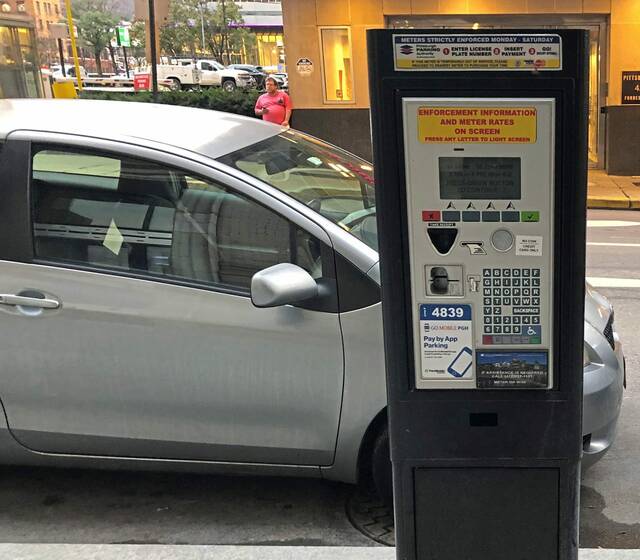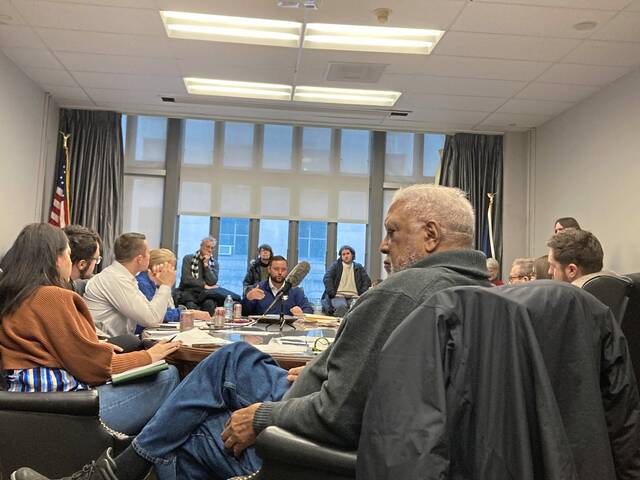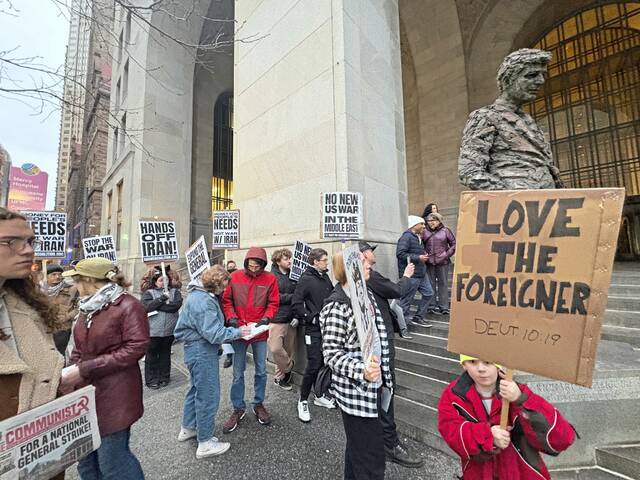After multiple tweaks to the legislation, Pittsburgh City Council on Tuesday approved a change to the city’s parking code that now creates hybrid residential parking permit areas and non-resident parking permits.
The legislation, introduced by Councilman Bobby Wilson in October, paves the way for the creation of hybrid parking permit areas where drivers without a permit could pay to park for a limited time.
It also establishes non-resident permits for people administering medical care or end-of-life care, performing city-permitted work or providing daytime childcare. Landlords with residential units in a residential parking permit area would also be eligible.
The measure sparked controversy during a public hearing in November, when several residents questioned whether the proposal would actually cause more parking troubles in places where it’s already hard enough to find a place to park. Residents — and some members of City Council — also voiced concerns about allowing landlords to get permits.
City Council has since sought to address residents’ worries, amending the legislation in response to concerns from residents and council members.
During the public hearing, Janet Squires, president of the Schenley Farms Civic Association, said she and other neighbors were concerned that they’d lose precious parking spots on streets where parking was already at a premium. She said she feared hybrid parking permit areas would encourage people to park in areas that have residential parking permits.
“The obvious worry was that, because we’re in Oakland, and we’re so close to the hospitals and universities, if they open it for paid parking, the parking places would be taken,” Squires said.
Under the existing parking ordinance, people could park there for a limited time — something people often abused. If it were to become a hybrid zone, people would have to pay to park, and would still be limited in how long they could park there.
Squires’ concern was alleviated when City Council clarified that residential parking permit areas wouldn’t become hybrid unless there was first a robust public process to determine if that was in the residents’ best interest.
“I think there are some people who think it’s a reasonable thing to consider,” she said, adding that they could be better informed about the potential change if they first watched other areas transition to the hybrid model.
As for the non-resident passes, Squires said, she’s a fan. It’s difficult, she said, to ensure contractors, babysitters and others can find a place to park on their crowded streets.
“Any time you live in an area where parking is highly desirable, you sort of have to struggle a little bit,” she said.
The non-resident parking permit that seemed to cause most concern among members of council was the permit designated for landlords. After two amendments, council members ultimately decided to allow landlords to have permits, with conditions.
They must prove they own a rental property in the area where they’re parking and that they are participating in Pittsburgh’s new rental registry, an effort to identify the city’s rental units and subject them to inspections.
Landlords who own between one and five rental units can get one parking permit. Those who own between six and 10 can get two. Landlords with more than 10 units can get up to four parking permits.
City Council unanimously approved the legislation Tuesday, though council members acknowledged there’s still work to be done.
“This was significant and it’s going to be really beneficial for the city,” Council President Theresa Kail-Smith said.
But it needs to come with better enforcement, Councilwoman Erika Strassburger said, as poor enforcement was among the top complaints citizens raised in regards to residential parking permit areas. Enforcing the ordinance, she would, would make “a lot of the problems disappear.”
Squires, though now supportive of the measure, continued to voice concerns about the enforcement, which she called “particularly weak.”
In addition to better enforcement, council members also advocated for more changes down the line, if necessary.
Councilman Bruce Kraus acknowledged that he had spoken with constituents who still seemed wary of the change. He assured them they would work to remedy “unintended consequences” of the amendment if they occurred.
“I want to come back and amend this bill if we have to,” Wilson added, urging residents in those areas to see how it works for a few months so they could come back to the table with more information if necessary.








